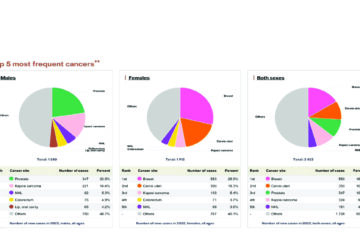Niël Terblanché
The ministry of home affairs, immigration, safety and security has announced the launch of the country’s first electronic identity card (e-ID), with the official roll-out event set for 26 June 2025 in Windhoek.
The project, implemented in partnership with the United Nations Development Programme (UNDP), marks a step toward the country’s digital transformation.
The roll-out follows an August 2023 Cabinet decision which approved the introduction of contactless chip IDs, similar to bank cards with an electronic chip embedded.
“Since then, the government has been engaged with putting the required infrastructure in place and engaging the relevant stakeholders for their input,” said the ministry’s executive director, Etienne Maritz.
The biometric-enabled e-ID will include both biometric and demographic data.
It is designed for real-time identity verification across sectors such as healthcare, education, banking, and elections.
The initiative is aligned with the UNDP’s Model Governance Framework for Digital Legal Identity.
Maritz said the new system is expected to modernise the country’s identity management and improve access to public and private services.
To raise awareness and build public trust, the ministry will begin a nationwide campaign, starting in the Khomas Region.
A key part of the campaign is an “unconference on digital legal identity” to be held on launch day in Windhoek.
Unlike traditional conferences, the unconference will focus on direct engagement between citizens and government officials.
Home affairs minister Lucia Iipumbu and UNDP resident representative Alka Bhatia will attend the event and respond to public questions.
“Questions and concerns are expected, and the two leaders are committed to addressing them with openness and clarity,” Maritz said.
Over 500 participants are expected, including community members, local councillors, political leaders, and government officials.
According to the ministry, the e-ID will support the development of e-government and improve service delivery through mobile outreach.
It is also aimed at facilitating regional mobility within the Southern African Development Community (SADC).
“This digital transformation is not just about technology. It is about recognition, dignity, and opportunity for every Namibian,” said Maritz.
He encouraged Namibians to stay informed, attend community events, and ask questions.
“The future of identity is here, and it begins with you. Join us as we build a stronger, safer, and more connected Namibia,” he said.




